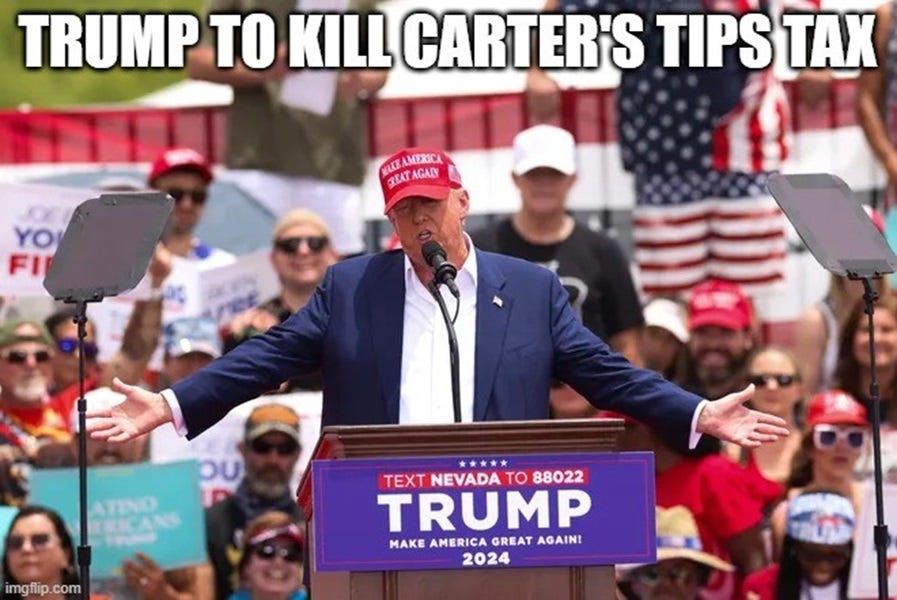The US House chamber cleared Trump’s sprawling “One Big Beautiful Bill Act” package in a 215-214 early-morning vote today, after days of marathon meetings, intense negotiations that spanned both ends of Pennsylvania Avenue, and a series of last-minute changes to the bill that were crucial in coalescing Republicans around the measure.
In the end, just two Republicans Congressmen, Thomas Massie (Kentucky) and Warren Davidson (Ohio), opposed the legislation. House Freedom Caucus Chair Andy Harris (R-Maryland) voted “present.”
Republicans on the House floor erupted in cheers and applause when Johnson slammed the gavel just before 7 a.m. EDT to close the successful vote.
The bill extends the tax cuts enacted by the president during his first term in 2017; boosts funding for border, deportation, and national defense priorities; imposes reforms, like beefed-up work requirements, on Medicaid; rolls back green energy tax incentives; and, among many other provisions, increases the debt limit by $4 trillion.
It also cancels taxes on tips and overtime, two of Trump’s campaign promises.
Its passage marks a massive victory for Speaker Johnson, who successfully cajoled scores of Republican holdouts, from hard-line conservatives to vulnerable moderates, to support the bill before his self-imposed Memorial Day deadline, muscling it through his razor-thin majority.
CONGRESSMAN CONNOLLY’S DEATH RESCUED MILLIONS OF TAXPAYERS
US Representative Gerry Connolly (D-VA) passed away on the early morning of May 21st. Being a member of the Party of Greed, he would have vote “no” to this bill and “no” to continuing tax relief to low-income and moderate-income Americans. His vote would have produced a tie, thus killing the “One Big Beautiful Bill Act,” which is expected to pass the senate because it has 53 Republicans.
Dodging four bullets: 1) Kamala Harris had promised to raise taxes on the middle and working classes A) by letting Trump’s Tax Cuts and Jobs Act (TCJA) expire at the end of 2025, and B) by taxing 25% of the increased value of your home since you bought it; and 2) Three Democrat congressmen have passed away since the election: Rep. Sylvester Turner (D-TX), Rep. Raul Grijalva (D-AZ), and Rep. Gerry Connolly (D-VA). Had anyone of them lived to vote “no” on this massive tax-saving bill, the bill would have failed.
Donald J. Trump promised to wipe out taxes on tips, taxes on Social Security and taxes on overtime. He was able to keep two of these promises but not the one about Social Security. He belatedly learned that the US House does not have the authority to alter anything regarding Social Security; however, he was able to get a $4000 enhanced tax deduction for older adults of certain income levels, to help defray taxes on Social Security income. Additional details were not available.
LET’S REVISIT TRUMP’S MASSIVE TAX CUTS
The Tax Cuts and Jobs Act (TCJA), a major overhaul of the tax code, was signed into law by President Donald Trump on December 22, 2017 and became effective for tax year 2018. No Democrat in either the House or the Senate voted for the bill. Democrats have always been greedy. LBJ was able to double income taxes in 1968 only because Democrats owned the House & Senate.
The legislation included some of the biggest changes to the tax code in three decades (when Reagan, a Republican, lowered taxes in 1986). The reform impacted both taxpayers and business owners alike, particularly through tax cuts. Many of the tax reform benefits for individuals will expire at the end of 2025. The law also created a single flat corporate tax rate of 21%.
The law cut corporate tax rates permanently and individual tax rates temporarily. It permanently removed the individual mandate requiring individuals to purchase health insurance, a key provision of the Affordable Care Act.
How the TCJA Affected Individuals
Income Tax Rates: The law retained the seven individual income tax brackets. The top rate fell from 39.6% to 37%, while the 33% bracket dropped to 32%, the 28% bracket to 24%, the 25% bracket to 22%, and the 15% bracket to 12%. The lowest bracket remained at 10%, and the 35% was unchanged.
Standard Deduction: TCJA significantly raised the standard deduction. For tax year 2024, the standard deduction for single filers is $14,600 and $29,200 for married couples filing jointly.
Personal Exemption: The law suspended the personal exemption, which was $4,150, through 2025. It was replaced with a much higher “standard deduction” which benefited lower income Americans, especially renters, and cost high earners more taxes because it removed the high amounts they had been claiming.
Health Coverage Mandate: TCJA ended the individual mandate, a provision of the Affordable Care Act (ACA) that levied tax penalties for individuals who did not obtain health insurance coverage.
Child Tax Credit: The law raised the child tax credit to $2,000 and created a non-refundable $500 credit for non-child dependents. Qualifying children must be younger than 17 years of age. The child credit begins to phase out when adjusted gross income (AGI) exceeds $400,000 (for married couples filing jointly, not indexed to inflation). These changes expire in 2025.
Student Loans: TCJA allows 529 plans to fund K to 12 private school tuition—up to $10,000 per year, per child. Under the SECURE Act of 2019, also signed by President Trump, the benefits of 529 plans were expanded, allowing plan holders to withdraw a maximum lifetime amount of $10,000 per beneficiary penalty-free to pay down qualified student loan debt.
Retirement Savings: The law repealed the ability to recharacterize one kind of contribution as the other, that is, to retroactively designate a Roth contribution as a traditional one, or vice-versa. Since the passing of the Setting Every Community Up for Retirement Enhancement (SECURE) Act in December 2019, individuals can contribute to Individual Retirement Accounts (IRAs) past 70½. Health savings accounts (HSAs) were not affected by the law.
Mortgage Interest: TCJA limits the mortgage interest deduction for married couples filing jointly to $750,000 worth of debt, down from $1,000,000 under the old law. The change expires after 2025.
State and Local Tax: The new law capped the deduction for state and local taxes at $10,000 through 2025.
Economic Growth
Treasury Secretary Steven Mnuchin said that the Republican tax plan would spur sufficient economic growth to pay for itself and more, saying of the "Unified Framework" released by Senate, House, and Trump Administration negotiators in September 2017:
"On a static basis our plan will increase the deficit by a trillion and a half. Having said that, you have to look at the economic impact. There's $500 billion that's the difference between policy and baseline. That takes it down to a trillion dollars. And there's two trillion dollars of growth. So with our plan we actually pay down the deficit by a trillion dollars, and we think that's very fiscally responsible."
On Dec. 11, 2017, the Treasury released an analysis showing that the law will increase revenues by $1.8 trillion over 10 years. The economy experienced massive growth, unemployment was the lowest in 50 years, and workers received huge increases in wages, during the Trump Administration due, in part, to the TCJA.
Lower Income Will Suffer When TCJA Expires
Once individual tax cuts expire after 2025, the majority of taxpayers, 53.4%, will face a tax increase: 69.7% of those in the middle quintile (40th to 60th percentile) will pay more.
The Joint Committee on Taxation estimated that the 22 million households making $20,000 to $30,000 will collectively pay 26.6% more in tax year 2026 than they would under Trump’s TCJA. The 629,000 households making over $1,000,000 will pay 1% less.
The Tax Cuts and Jobs Act (TCJA) was a major tax code overhaul signed into law by President Trump in 2017 and became effective for tax year 2018. TCJA cut taxes for shareholders and individual taxpayers alike. However, cuts for individual Americans expire in 2025, at which time the majority of taxpayers will face a significant tax increase.
Trump To Kill Carter's Tips Tax
Disgusting! I recall Ole Jimmy whining about waiters (men) in exclusive restaurants in Manhattan working without wages because the tips were so high, while he abused waitresses (women) who slung hash in neighborhood diners. Although I had never been a waitress, I knew and he knew that 99% of waiters/waitresses were lucky to make






Thanks for the comprehensive report, Diane. The revenue from tariffs will help to pay down the debt. Kevin Hassett, who leads President Trump’s National Economic Council approves of the bill’s details, so the Great Big Beautiful Bill is okayed by me. Guess that dead Democrat congressman finally cast a posthumous vote for a Republican bill.
Great post... Increased tax revenues, tariffs, and reduced waste (read theft) will act over time to reduce the deficit.